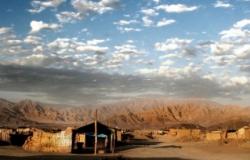
The article emphasizes the importance of evaluation in the context of sustainable development. It focuses on the so called environment-poverty nexus where issues of environmental conservation and management meet the social and economic development needs. Given the threats to the global environment and the forces of economic development that work against it, it is crucial that environmental policies, strategies, programmes and projects are designed and implemented in an effective manner producing lasting impacts. Evaluation is a central tool for analysing what works, why and under what circumstances to inform policy making and programme design. Environmental evaluation faces specific challenges due to the complex nature of the environment-poverty nexus. Based on a review of evaluation literature and practical experiences with evaluations conducted on the nexus in the international development arena, the article draws lessons for evaluating sustainable development. It concludes by suggesting that strong evaluation be built into the new Sustainable Development Goals.